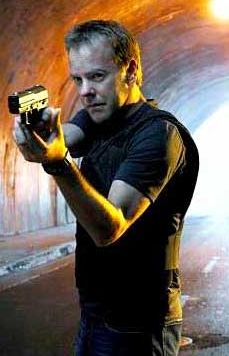I’ve been thinking a lot today about the idea of “investing in people.” We are pretty obsessed with finding charities that have good results, but many people (including our applicants, and including some of the friends I’m making overseas ), are urging me to put more focus on finding great people, and trusting them.
 Here’s the thing: I love this idea. I am all for investing in great people. GiveWell wouldn’t exist if it weren’t for this phenomenon; in fact, nothing would exist, because you need to get past your startup phase before you can start demonstrating effectiveness. And there is a set of people I know that I would call confidently call “great people” (in the specific sense of competence – there are other people I like personally but wouldn’t trust to invest a coupon for 50% off peanut butter). Any of these great people could come up to me and say “I’m starting a charity” and already be 90% of the way to getting half or more of my charitable budget.
Here’s the thing: I love this idea. I am all for investing in great people. GiveWell wouldn’t exist if it weren’t for this phenomenon; in fact, nothing would exist, because you need to get past your startup phase before you can start demonstrating effectiveness. And there is a set of people I know that I would call confidently call “great people” (in the specific sense of competence – there are other people I like personally but wouldn’t trust to invest a coupon for 50% off peanut butter). Any of these great people could come up to me and say “I’m starting a charity” and already be 90% of the way to getting half or more of my charitable budget.
But here’s the other thing. None of these great people run charities; they all do something else. That isn’t a comment on the nonprofit sector, it just reflects that I’ve spent most of my life outside it. And, all of these people have impressed me through substantial interaction, and by showing themselves to be intelligent and capable in the things they do focus on. I can’t just dial up a “great person” in whatever area I want.
 I can’t determine whether someone is a “great person” through a one-hour abstract conversation or a two-hour site visit. I can’t do it by looking up my friend’s friend’s friend’s friend’s friend, even if I use Facebook … there are only so many degrees out that I trust people’s opinions. (2.) By the same token, I definitely can’t conclude that someone’s a great person from their “reputation.” And even if I could do any of these things, why should donors who’ve never met me trust my assessment?
I can’t determine whether someone is a “great person” through a one-hour abstract conversation or a two-hour site visit. I can’t do it by looking up my friend’s friend’s friend’s friend’s friend, even if I use Facebook … there are only so many degrees out that I trust people’s opinions. (2.) By the same token, I definitely can’t conclude that someone’s a great person from their “reputation.” And even if I could do any of these things, why should donors who’ve never met me trust my assessment?
That leaves me with the other way of finding a great person: looking at what they’ve accomplished. That’s how I’ve come to think that Steve Jobs is great at what he does, and that Frank Thomas is great at what he does; that’s how I’ve identified all the great people I haven’t met. Not a perfect method, but not bad.
A lot of investing and donating comes through personal connections, and rightfully so. But the world is too big for all of it to work this way. Someone who is great at helping people, and is past the startup phase (as all our applicants are), will have evidence that s/he’s helped people. I might double-check my impression with a site visit; a relationship might develop eventually; but it seems fair to judge an executive starting with the organization they spend their life running, rather than the other way around.
What do you think? Any other ideas on how to integrate the “great person” test into our grantmaking?

Comments
Research and meet Bill Drayton at Ashoka. He and his organization have mastered the art of finding and betting on social entreprenuers in dozens of countries worldwide. It starts with an on-the-ground vetting team consisting of “natives” themselves with significant personal accomplishment.
Makes sense to judge a person by their works. And the judge the works by evidence.
We agree upon some way to ferret out the great people. Judge? Measure? Test?
I think we wind up finding the great people by trusting whatever we each, as individuals, learn to trust in ourselves that over time tells us, ‘yup, Chuck, is a great leader because…’
Gathering many people to determine if ‘Chuck’ really is a great person, and listening to many gutts when determining people, became a standard among American non profits – i.e. the board quorum.
Thank you for your input!
Comments are closed.